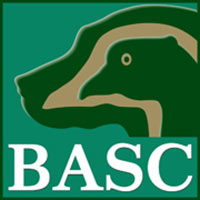Officers in the Highlands and Islands and the British Association for Shooting and Conservation would like to remind the public of what they should do if they find an illegal snare.
The use of snares is strictly legislated and is allowed for fox and rabbit control to ensure that damage to crops, livestock, game and other wildlife and their habitats can be minimised. However illegal use of snares constitutes as wildlife crime.
All legally set snares must be labelled appropriately with the identification number of the person setting it. If you find a snare that causes you concern do not handle it or remove it. It may be legally and properly set for a legitimate purpose, but if not, handling the snare may compromise the recovery of forensic evidence. Take a photograph, note the location of the snare and contact Police Scotland for further advice.
Inspector Isla Campbell, Local Policing Inspector for Lochaber, said: “Several officers in the Local Policing Team have been trained as Wildlife Crime Officers in addition to their routine policing duties. We are committed to working with partners to raise awareness of and prevent wildlife crime. We will actively investigate any crimes of this nature with a view to protecting Scotland’s wildlife.”
Jake Swindells, Country Officer from BASC Scotland, said: “BASC Scotland worked closely with other organisations to develop the practitioners’ guide. This is available through our website or we can supply a paper copy for those who would prefer. It is imperative that snaring is practiced both legally and humanely. If it is not then this vital working method could be lost by the actions of the few who disregard the law. Anyone found to be operating outside of the law may also be prosecuted and find themselves with a criminal record.”
If you are in any doubt when snaring, suspect someone of snaring illegally or require further information then contact your Police Scotland Wildlife Crime Liaison Officer on 101 or call BASC Scotland on 01350 723226.
If you find an animal caught in a snare do not try and deal with it yourself. The animal may injure you or suffer further injury itself. Note the location as accurately as possible and contact Police Scotland for further guidance.
Police Scotland and BASC are members of the Partnership for Action Against Wildlife Crime in Scotland (PAWS). Further information can be found at www.PAW.Scotland.gov.uk
